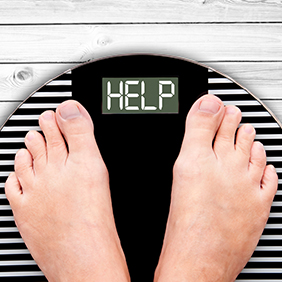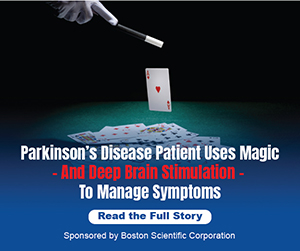If, like hundreds of thousands of Americans, your New Year’s weight loss plan is to hit the gym, you’ll most likely be feeling defeated before the first thaw. Why? Because studies show that most people trying to lose weight try–and fail–three to four times a year. And one of the main reasons is that pushing yourself to exercise actually depletes willpower, which leaves you vulnerable to overeating.
More important, though, is this little-known scientific fact: the seat of our body’s weight loss function is not in our thighs or fat cells, but in the brain. As a doctor of brain and cognitive science I can tell you the research proves that the foods we consume today, and the way we consume them, quickly trigger changes in the brain that ultimately block weight loss by creating insatiable hunger and overpowering cravings.
The main culprits are flour and sugar, which are in nearly everything we eat. They hijack our hormones and neurotransmitters and actually change our brains, rewiring them to ensure that we will continue eating more and more of both. In other words, they are highly addictive. As a former drug addict, I don’t use this term lightly.
But with the right food choices we can heal our brain so that it work for us, not against us, and ultimately achieve permanent weight loss. I did it myself and have helped thousands of others do the same. Here are 5 simple steps:
Eliminate Sugar and Flour
Flour and sugar are as addictive in your brain as cocaine and other powdered drugs. They over-stimulate the brain’s nucleus accumbens — its seat of pleasure, reward and motivation — ultimately leading us to need increasingly large doses to experience the same level of pleasure. That’s addiction.
Flour and sugar also blocks the brain from recognizing the hormone leptin, which signals that we’re full. Without leptin, we simply graze all day and never feel full.
Detoxing the brain by taking sugar and flour out of the equation altogether is the only way to end this vicious cycle.
Eat Regular Meals
A steady schedule of three meals a day at regular mealtimes—breakfast, lunch, and dinner —trains the brain to eat the right things at the right times and to pass up the wrong things in between.
Eat the Right Quantities
Most adults no longer receive reliable signals from their brains to stop eating when they’ve had enough. Eating right-sized portions will revive those signals over time and help the pounds melt off.
Understand how willpower works
We mistakenly think of willpower as an aspect of our moral character, something you can just choose to have “more” of. However, willpower is actually finite cognitive resource that you only have about fifteen minutes of at a time. And it’s depleted by a host of stressors. You cannot rely on willpower alone to change your eating habits, because you will suffer from willpower fatigue!
Be Consistent
Like a drug rehab program, make these “Bright Lines” non-negotiable. Doing so will take the burden off willpower, make good choices automatic, and remove the ambiguity that leads to “just one more little bite.”
Then, once your brain is re-wired and you live at goal weight, exercise all you want. Until then, do yourself a favor, take exercise off your resolution list this year so that you never have to write “Lose Weight” ever again.













